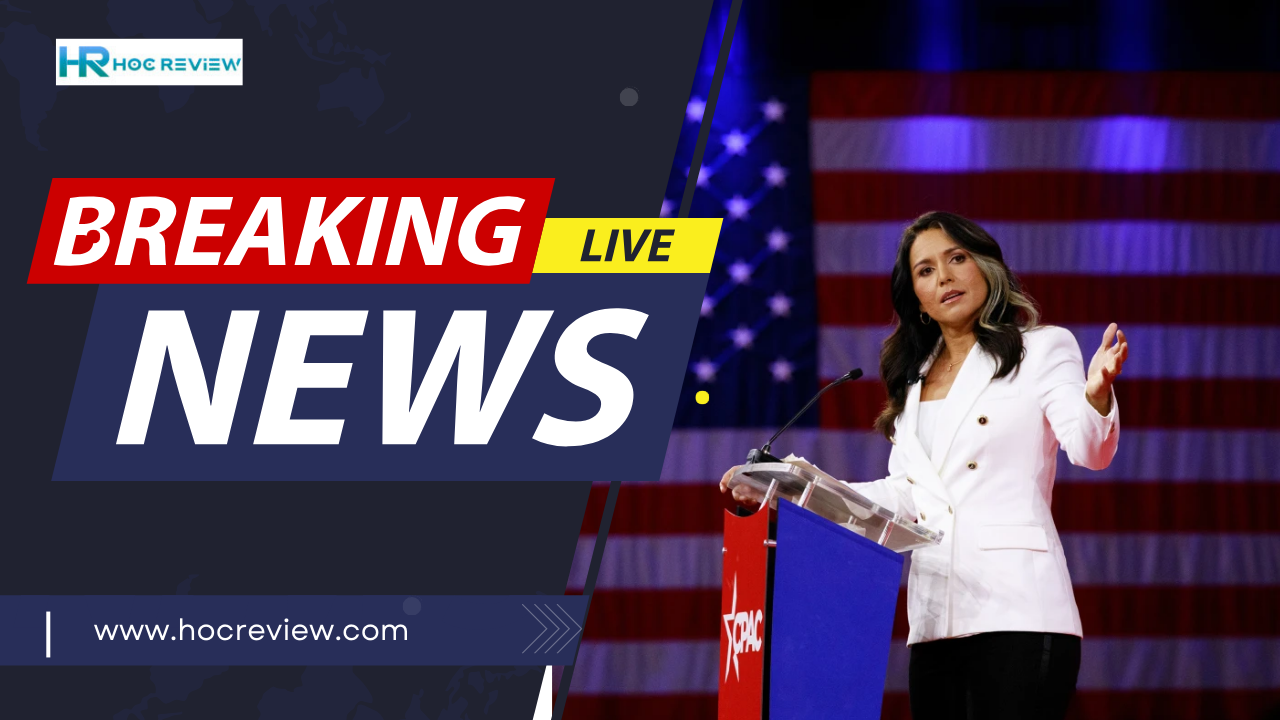Tulsi Gabbard’s name is making waves once again as she steps into a prominent national role. Known for her distinct background and outspoken stances, she has always commanded public curiosity.
From her early days as a Democratic congresswoman to her recent appointment as Director of National Intelligence by President-elect Donald Trump, Gabbard’s journey is one filled with surprising shifts and firm beliefs.
In this article, I’ll walk you through her path, from her roots in American Samoan heritage and Hindu beliefs to her political realignments and military service. Let’s explore the Tulsi Gabbard that’s captivating America’s attention.
Introduction to Tulsi Gabbard: Her Background and Identity
Tulsi Gabbard has always been a figure who captures curiosity, partly due to her unique background. She hails from American Samoan heritage and practices Hinduism, a rarity in American politics.
Although she’s often assumed to have Indian roots because of her first name, Gabbard clarified that her mother converted to Hinduism and chose Hindu names for her children.
As the first Hindu elected to the U.S. Congress, she has often been celebrated as a groundbreaking figure. During her congressional oath, she chose to swear on the Bhagavad Gita, highlighting her spiritual commitment.
This blend of cultural roots and religious beliefs has given Gabbard a distinct presence, making her stand out as both a political trailblazer and a unique voice in American politics.
Tulsi Gabbard’s Political Journey and Party Affiliation Changes
Gabbard’s political journey began with the Democratic Party, where she served as a Congresswoman, frequently advocating for policies that diverged from traditional Democratic stances.
Her early political career highlighted a focus on foreign policy and skepticism about U.S. military interventions abroad, especially in conflict zones.
Her critical view of these interventions has remained one of her consistent positions, even as her political affiliations have shifted.
In 2022, Gabbard made headlines by leaving the Democratic Party, which she criticized as being led by “elitist warmongers” and “woke activists.”
Her party affiliation change to the Republican Party signified a deepening of her alignment with figures like Donald Trump, whom she later endorsed.
This shift underlined her dissatisfaction with the Democratic Party’s direction and positioned her as a significant player in the Republican sphere, valued for her bipartisan appeal and bold critiques.

Tulsi Gabbard’s Military Career and Service
As a Lieutenant Colonel in the Army National Guard, Gabbard brings a distinct military perspective to her political roles. Her service has had a significant impact on her views, particularly on issues of national security and the justice system.
With deployments in the Middle East, Gabbard developed a critical outlook on foreign policy decisions that prioritize intervention.
Her military career, spanning over two decades, has not only shaped her political ideology but also earned her the respect of supporters who value her firsthand experience in matters of security and defense.
In her new role, her military background is expected to influence her approach, potentially lending a stronger security-focused stance to her decisions.
Tulsi Gabbard’s 2024 Appointment as Director of National Intelligence
In a surprising yet notable appointment, President-elect Donald Trump selected Tulsi Gabbard as Director of National Intelligence (DNI).
This decision has drawn both praise and scrutiny, with Trump commending her “fearless spirit” and commitment to defending American values.
He specifically acknowledged her bipartisan support and dedication to constitutional rights as attributes that make her a fit for this vital role.
In her capacity as DNI, Gabbard’s responsibilities will include overseeing the nation’s intelligence efforts, coordinating with various agencies, and ensuring the U.S. remains secure against threats.
Trump’s confidence in her ability to take on this challenging role reflects her strong alignment with his policies and her emphasis on peace through strength.
Tulsi Gabbard’s Key Stances and Views on National and International Issues
Throughout her career, Gabbard has remained vocal on a number of important issues. Her perspectives on foreign interventions reflect her belief in reducing American military involvement overseas, a stance informed by her military background.
She has also voiced concerns over government transparency and civil liberties, emphasizing the need for a justice system free from partisan weaponization.
Her appointment as DNI aligns well with her values, as she is expected to focus on securing the nation while respecting constitutional freedoms.
Gabbard’s stance on these issues has not only defined her career but has also shaped her reputation as an independent thinker unafraid to challenge both political parties.
Stay up-to-date with the latest trends by visiting our breaking news section.
Tulsi Gabbard’s Personal Life and Influences
Gabbard’s personal life is as unique as her public career. She is married to Abraham Williams, a cinematographer, which brings a creative perspective into her often politically charged world.
Her father, Mike Gabbard, is also in politics as a state senator, though he switched affiliations from Republican to Democrat, which highlights the complexity within her own political journey.
Her commitment to Hinduism continues to influence her, especially her use of the Bhagavad Gita in her oath-taking, which resonates deeply with her followers.
These personal aspects contribute to the public’s fascination with her identity and add depth to her public persona.

Historical Context of Tulsi Gabbard’s Role and Political Shifts
Gabbard’s election as the first Hindu congresswoman was historic, making her a landmark figure in U.S. politics.
Her transition from the Democratic Party to the Republican Party is one of the more notable shifts in recent years, showing a broader trend of changing allegiances in contemporary U.S. politics.
Comparing Gabbard to other non-traditional figures, her journey mirrors the broader narrative of outsiders challenging the mainstream, both in politics and in public perception.
This historical context helps in understanding how Tulsi Gabbard’s decisions may influence future dynamics within the Republican Party and American politics as a whole.
Conclusion
In a career defined by change, Tulsi Gabbard continues to stand out in the American political landscape. As she takes on her new role as Director of National Intelligence, her background and values will likely shape the way she navigates national security challenges.
If you’re curious about more, feel free to share your thoughts, leave a comment, or explore more content on HocReview.com.







